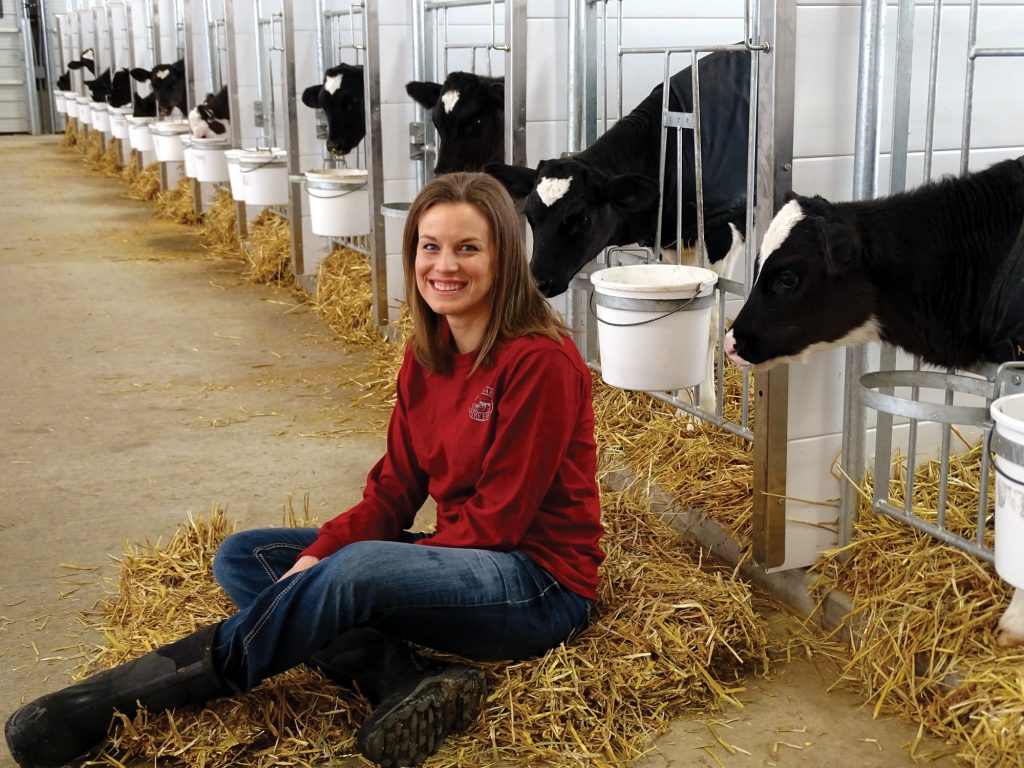Every week when I go to the grocery store, I pay close attention to the labels on the food products I purchase. It can be a bit overwhelming if you don’t know what you need or want. I consider myself lucky to be a farmer because I am intimately connected to the food I eat and the milk I drink. This connection helps me navigate through some of the labeling and marketing of food products.
I know not everyone has an opportunity to connect with a farmer and that can make our food, and the labels on food packaging, seem like a bit of a mystery.
Our state legislature is considering three bills that will make our grocery shopping experience less overwhelming and provide more clarity and consistency in how meat, milk and other dairy products are labeled. All three bills are important, but since I am a dairy farmer, I am going to focus on Senate Bills 466 and 463 since these deal with milk and other dairy products.
As a dairy farmer, I stand behind the high-quality, nutritious milk that our cows provide. The need for accurate labeling of milk is significantly important to my family farm. When I think about the importance of labeling, I think about my responsibility to consumers. Consumers place trust in farmers like me, to provide safe, quality food. Farmers place their trust in the marketing of our products. This balance of trust is only achieved and safeguarded by regulation of how food is processed, packaged and labeled.
The dairy industry has built a solid foundation on the value of the word ‘milk’ because it represents a highly nutritious, tested, safe and wholesome food source. Ultimately, food companies are misleading consumers and damaging the integrity of the dairy industry by labeling nut- and plant-based beverages as ‘milk.’
Dairy products are an important part of a healthy diet, and currently, most Americans are not meeting the recommended intake for dairy foods based on the 2015 Dietary Guidelines for Americans. One serving of traditional milk contains 8 grams of protein while other imitation beverages including almond, coconut and rice have a lower protein content. In many cases, the sweetened versions of the imitation beverages contain more sugars and carbohydrates than non-flavored dairy milk.
Being an avid runner, the biggest area of concern for me is that mislabeling non-dairy beverages as ‘milk’ creates confusion about the nutritional characteristics of these products. Non-dairy products are heavily processed and include a variety of ingredients such as thickeners, sweeteners and artificially added nutrients. However, we are led to believe, based on marketing, that these artificial products are as natural and equally nutritious as real dairy.
We deserve accuracy and truth in our food product labels. Our grocery shopping experience should empower us to make healthy decisions for ourselves and our families based on sound science, not clever marketing schemes. I hope you will stand with me in supporting this proposed legislation that will give us fair, accurate and informative food labels for real dairy.
Andrea Brossard
 Andrea Brossard is a third-generation dairy farmer from Beaver Dam.
Andrea Brossard is a third-generation dairy farmer from Beaver Dam.


Leave a Reply